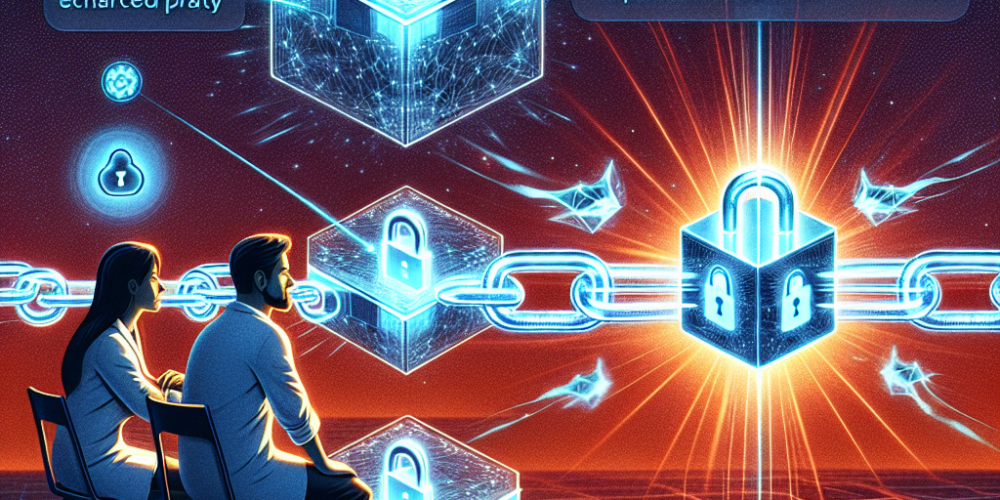In a recent development that is set to redefine the paradigms of blockchain technology, a revolutionary implementation of zero-knowledge proofs (ZKPs) has been introduced to significantly enhance privacy and efficiency. This breakthrough, spearheaded by a consortium of leading blockchain developers and cybersecurity experts, aims to address some of the most critical concerns in the blockchain ecosystem today: privacy protection and transactional speed.
The integration of zero-knowledge proofs into blockchain networks is not entirely new, but the scale and effectiveness of this latest iteration are unprecedented. Essentially, ZKPs allow one party to prove to another that a statement is true, without revealing any information apart from the fact that the statement is indeed true. This technology fosters a new level of confidentiality that prevents sensitive information from being exposed on the blockchain while still maintaining the integrity and security of decentralized transactions.
The Impact on Privacy
Privacy has always been a double-edged sword in blockchain technology. On one hand, blockchain offers better anonymity than traditional financial systems; on the other, the transparency of its public ledger can be a potential risk for both individual and corporate users. The implementation of ZKPs tackles this issue head-on by allowing transactional data to be validated without exposing the actual data involved in the transactions.
For instance, in financial transactions, a user can prove that they have sufficient funds for a transaction without revealing their total account balance. This method not only secures the user’s financial privacy but also opens doors for broader adoption of blockchain in fields requiring confidentiality, such as healthcare and government operations.
Enhanced Transactional Efficiency
Another significant advantage of this innovation is the improvement in transactional efficiency. Blockchain networks, particularly those that handle a high volume of transactions like Ethereum, often suffer from network congestion and slow transaction speeds. By implementing ZKPs, the amount of data needed to be verified and stored on the blockchain reduces drastically, thereby speeding up the processing times and decreasing the costs associated with transactions.
This efficiency gain not only enhances user experience but also provides a greener, more sustainable approach to blockchain technology. With less data to process, the energy consumption of networks will decrease, alleviating some of the environmental concerns associated with blockchain’s energy use.
Future Implications and Industry Adoption
The potential implications of incorporating zero-knowledge proofs into blockchain are vast. Experts predict that this technology will catalyze the mass adoption of blockchain across various sectors. Financial institutions are particularly keen on leveraging this technology to execute more secure and private transactions. Moreover, industries that have been on the fence about blockchain, due to concerns over client confidentiality, may now reconsider their stance.
The adoption of ZKPs also stands to revolutionize voting systems, providing a method to verify eligibility and tally votes without compromising voter anonymity or the integrity of the electoral process. Such applications could greatly reduce the risks of fraud and tampering in elections and other voting scenarios.
Challenges and Considerations
Despite its numerous benefits, the integration of zero-knowledge proofs into existing blockchain frameworks is not without challenges. The complexity of ZKP algorithms requires significant computational power, which could offset some of the efficiency gains in terms of processing speed. Moreover, as with any emerging technology, establishing regulatory frameworks that address the unique aspects of ZKPs will be crucial for its long-term success.
In conclusion, the introduction of zero-knowledge proofs in blockchain technology marks a critical step forward in addressing the longstanding issues of privacy and efficiency. As the industry continues to evolve, the focus will likely shift towards optimizing these algorithms and integrating them seamlessly into different blockchain applications. The active collaboration between developers, industries, and regulatory bodies will be vital in harnessing the full potential of this promising technology.


